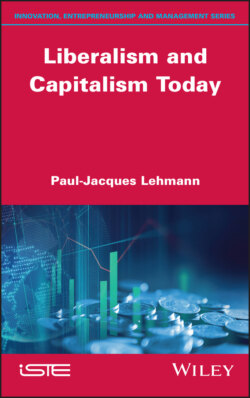Читать книгу Liberalism and Capitalism Today - Paul-Jacques Lehmann - Страница 16
1.2.2. Land ownership
ОглавлениеPrivate property was born with agriculture. In the past, people lived from hunting in areas close to where they lived and had no need to have any rights to the land they cultivated. They simply sought food. However, as soon as they became farmers, as soon as they got the food that they and their families consumed from the land, they wanted to protect the piece of land they were farming: through legislation, especially property rights, family land ownership appeared. Some individuals then owned more than the one piece of land needed for their own consumption. They sold the surplus and had income that allowed them to meet other, previously unknown needs.
Originally small in size, land ownership would not cease to grow, becoming seigniorial or domanial throughout Antiquity and the Middle Ages, leading to the power, both political and economic, of its owners, and to the material and moral misery of other members of the agricultural class who saw no hope for their future. The form of ownership determined the political system of a nation. The concentration of property in a small number of hands was harmful for political freedom, because then the aristocracy prevailed: the people could not be entrusted with the control of political decisions when they were not empowered to manage private interests.
As we will see, the rural exodus of peasants to the factory and the city reduced the number of landowners while increasing the size of each estate. However, one of the main causes of pauperism lay in the existence of the indivision of land. De Tocqueville (2010) therefore recommended, as was the case in France and contrary to what existed in his time in England, the maintenance of small plots as a means of fighting poverty, so that poor peasants had something that belonged to them that could be exploited when economic difficulties arose: “The small landowner receives impetus only from himself, his sphere is narrow, but he moves freely within it. His fortune grows slowly, but it is not subject to sudden chance. His mind is tranquil as his destiny, his tastes regular and peaceful as his work, and, needing precisely no one, he places the spirit of independence in the midst of poverty itself”.
Moreover, when property was owned by a large number of citizens, democracy was easier to establish and apply satisfactorily since responsibilities could be shared. “There is nothing more conducive to the rule of democracy than the division of land into small properties”. However, de Tocqueville explained, and this was a very common argument in his own country, that French centralization encouraged a large number of small landowners to come to Paris to take up much more rewarding positions, close to power, in the public administration, while entrusting farmers with the exploitation of their land. However, on the one hand, these farmers did not have a spirit of innovation and therefore did not advance agriculture, and, on the other hand, the landowners became bourgeois, forming a very powerful class enjoying many privileges.
With liberalism and the emergence of the capitalist enterprise, the nature of property rights changed: land and family property was divided and became movable, both individual and collective.
